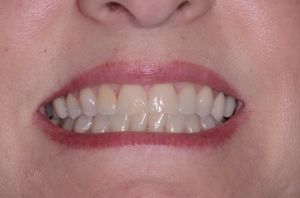
When experiencing dental pain most people look first to Over the Counter (OTC) medications for relief. Over the counter pain relievers such as Aspirin, Tylenol (Acetaminophen) and Ibuprofen are the most common choices. When experiencing pain, it is tempting to take more of a medication to attempt to get relief. While these medications can help to reduce pain, they each have side effects and can be toxic when taken improperly. For any medication, follow the instructions and contact your medical provider if you are unsure.
Acetaminophen/Tylenol
Tylenol or Acetaminophen has been around since 1948 and today is the most common drug ingredient in the United States and the most used over the counter medication used for pain. It is found in over 600 different medications and available in many dosages. For the management of more severe pain, it is mixed with opioid and nonopioid agents. While it is very popular, it is also the most common cause of acute liver failure in the United States.
Symptoms of Acetaminophen toxicity and overdose are nausea, vomiting, anorexia, abdominal pain, and malaise. Acetaminophen induced liver toxicity manifests as jaundice or a yellowing of the skin, whites of the eyes and mucous membranes due to high levels of bilirubin in the blood stream. Dark colored urine and/or clay colored stool is another sign of liver toxicity. The increasing number of cases of acute liver failure due to Acetaminophen has prompted the FDA to look to change the recommendations for dosage.
Suggestions for the safe use of Acetaminophen are:
- Know the dose you are taking. Products come in 325mg and 500mg.
- Be extra cautious when taking 500mg “extra strength” tablets or two 325mg tablets (total dose of 650mg).
- Do not exceed the recommended dose and interval. Most cases of Acetaminophen overdose are unintentional. The maximum daily dose for an adult is less than 4000mg from all sources. Because this is based on a 150pound person, it is safer to stay closer to 3000mg per day.
- Review combination medications that contain multiple ingredients and know your dose.
- Limit alcohol intake. Drinking alcohol causes the liver to convert Acetaminophen to toxic byproducts that increase your chance of liver damage.
- Know if your other medications interact with Acetaminophen.
- If pregnant or breastfeeding, avoid any medication without consulting your physician.
Ibuprofen/Motrin/Advil
Ibuprofen was discovered in the 1960’s and has both pain relieving and anti-inflammatory action. It is a class of medication called Non-Steroidal Anti-Inflammatory Drugs or NSAID’s. Ibuprofen can be found in many combinations OTC drugs such as cold and flu medications, so be sure to get an accurate accounting of the amount you are taking each day.
The recommended dosage for mild to moderate pain is 400mg every 4 to six hours. The daily limit for OTC Ibuprofen is 1,200mg in a 24-hour period
Side effects of Ibuprofen are stomach upset, indigestion and cramping, and usually go away after a short time. It is suggested that you take these medications with a light snack to minimize any discomfort.
The signs of an accidental overdose of Ibuprofen are:
– Ringing in the ears
– Blurred vision
– Diarrhea
– Heartburn
– Nausea and vomiting
– Low blood pressure and weakness
– Damage to the kidneys with little to no urine produced
– Agitation or confusion
– Dizziness
– Rash
– Sweating
– Chills
– Ulcers and bleeding in the stomach
– Seizures
– Severe drowsiness
Aspirin
Aspirin is another NSAID that is indicated for mild to moderate pain relief. For pain relief, the recommended dosage is 350 to 650mg every 4 hours or 500mg every 6 hours. The maximum dosage for OTC use is 4,000 mg in total every 24 hours. Many OTC products may contain Aspirin in combination with other drugs so read labels and calculate your daily dosage properly.
A common misconception with Aspirin is that applying it to the gums or directly to a tooth will help relieve pain. This is not true. Aspirin is acidic and will burn the gum tissue and cause damage to your teeth and gums and cause more pain. The pain relief experienced with applying powders and pills to the gums and teeth is from swallowing the bitter powder and dissolving pills.
Most side effects of Aspirin are dose related, meaning the greater the dose, the greater the chance of experiencing unwanted side effects. The most common involves the gastrointestinal system and ringing in the ears.
Symptoms of accidental overdose with Aspirin are:
– Rapid breathing
– Wheezing
– Ringing in the ears
– Blurred vision
– Agitation, confusion, incoherence
– Seizures
– Drowsiness
– Headache
– Rash
– Diarrhea
– Heartburn
– Nausea and vomiting (sometimes bloody)
– Stomach pain
It is important to remember that while a medication may be available over the counter, it does not mean that it is safe. Always follow the dosage and interval instructions and warnings on the label. If there is any doubt, contact your doctor or dentist prior to using over the counter pain relief medications.



